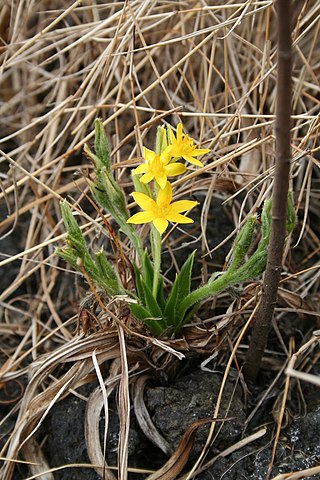
Benign prostatic hyperplasia (BPH), also called prostate enlargement, is a noncancerous increase in size of the prostate gland. Symptoms may include frequent urination, trouble starting to urinate, weak stream, inability to urinate, or loss of bladder control. Complications can include urinary tract infections, bladder stones, and chronic kidney problems.

Tadalafil, sold under the brand name Cialis among others, is a medication used to treat erectile dysfunction, benign prostatic hyperplasia, and pulmonary arterial hypertension. It is taken by mouth. Onset is typically within half an hour and the duration is up to 36 hours.

Finasteride, sold under the brand names Proscar and Propecia among others, is a medication used to treat pattern hair loss and benign prostatic hyperplasia (BPH) in men. It can also be used to treat excessive hair growth in women. It is usually taken orally but there are topical formulations for patients with hair loss, designed to minimize systemic exposure by acting specifically on hair follicles.

5α-Reductase inhibitors (5-ARIs), also known as dihydrotestosterone (DHT) blockers, are a class of medications with antiandrogenic effects which are used primarily in the treatment of enlarged prostate and scalp hair loss. They are also sometimes used to treat excess hair growth in women and as a component of hormone therapy for transgender women.

Doxazosin, sold under the brand names Cardura among others, is a medication used to treat symptoms of benign prostatic hyperplasia, hypertension, and posttraumatic stress disorder (PTSD). For high blood pressure, it is a less preferred option. It is taken by mouth.

Dutasteride, sold under the brand name Avodart among others, is a medication primarily used to treat the symptoms of a benign prostatic hyperplasia (BPH), an enlarged prostate not associated with cancer. A few months may be required before benefits occur. It is also used for scalp hair loss in men and as a part of hormone therapy in transgender women. It is usually taken by mouth.
Alpha-1 blockers constitute a variety of drugs that block the effect of catecholamines on alpha-1-adrenergic receptors. They are mainly used to treat benign prostatic hyperplasia (BPH), hypertension and post-traumatic stress disorder. Alpha-1 adrenergic receptors are present in vascular smooth muscle, the central nervous system, and other tissues. When alpha blockers bind to these receptors in vascular smooth muscle, they cause vasodilation.

Tamsulosin, sold under the brand name Flomax among others, is a medication used to treat symptomatic benign prostatic hyperplasia (BPH) and chronic prostatitis and to help with the passage of kidney stones. The evidence for benefit with a kidney stone is better when the stone is larger. Tamsulosin is taken by mouth.

Hypoxis is a genus of flowering plants of the family Hypoxidaceae. The genus has an "almost cosmopolitan" distribution, occurring in Africa, the Americas, Asia, and Australia. Europe lacks native species. Most species are in the Southern Hemisphere, especially in southern Africa. Common names for the genus include star-grass, star lily, yellow stars, African potato, and stars. The genus is the largest of the Hypoxidaceae and has its centre of variation in South Africa, where it occurs in open undisturbed grasslands. The name Hypoxis was taken over by Linnaeus in 1759 from a name coined by Paul Reneaulme in 1611 for a superficially similar species of Gagea and meaning "a little sour", referring to the taste of that plant's leaves.
Saw palmetto extract is an extract of the fruit of the saw palmetto. It is marketed as a dietary supplement that may help with benign prostatic hyperplasia, but there is no clinical evidence that it is effective for this purpose.

Silodosin, sold under the brand name Urief among others, is a medication for the symptomatic treatment of benign prostatic hyperplasia. It acts as an alpha-1 adrenergic receptor antagonist.
Lower urinary tract symptoms (LUTS) refer to a group of clinical symptoms involving the bladder, urinary sphincter, urethra and, in men, the prostate. The term is more commonly applied to men – over 40% of older men are affected – but lower urinary tract symptoms also affect women. The condition is also termed prostatism in men, but LUTS is preferred.

Alpha-blockers, also known as α-blockers or α-adrenoreceptor antagonists, are a class of pharmacological agents that act as antagonists on α-adrenergic receptors (α-adrenoceptors).

Traditional African medicine is a range of traditional medicine disciplines involving indigenous herbalism and African spirituality, typically including diviners, midwives, and herbalists. Practitioners of traditional African medicine claim, largely without evidence, to be able to cure a variety of diverse conditions including cancer, psychiatric disorders, high blood pressure, cholera, most venereal diseases, epilepsy, asthma, eczema, fever, anxiety, depression, benign prostatic hyperplasia, urinary tract infections, gout, and healing of wounds and burns and Ebola.

Atraric acid is a naturally occurring phenolic compound and ester with the IUPAC name methyl 2,4-dihydroxy-3,6-dimethylbenzoate and molecular formula C10H12O4. It occurs in the root-bark of Pygeum africanum and Evernia prunastri (Oakmoss). There is evidence to suggest that it has antiandrogenic activity in humans and its use in treatment of benign prostate hyperplasia, prostate cancer, and spinal and bulbar muscular atrophy has been investigated.

Epilobium parviflorum, commonly known as the hoary willowherb or smallflower hairy willowherb, is a herbaceous perennial plant of the family Onagraceae.
Dutasteride/tamsulosin, sold under the brand name Jalyn among others, is a medication produced by GlaxoSmithKline for the treatment of adult male symptomatic benign prostatic hyperplasia (BPH). It is a combination of two previously existing medications: dutasteride, brand name Avodart, and tamsulosin, brand name Flomax. It contains 0.5 mg of dutasteride and 0.4 mg of tamsulosin hydrochloride.

Delmadinone acetate (DMA), sold under the brand name Tardak among others, is a progestin and antiandrogen which is used in veterinary medicine to treat androgen-dependent conditions such as benign prostatic hyperplasia. It must be used with care as it has the potential to cause adrenal insufficiency via inhibition of adrenocorticotropic hormone (ACTH) secretion from the pituitary gland. DMA is the C17α acetate ester of delmadinone, which, in contrast to DMA, was never marketed for medical use.

Erteberel is a synthetic, nonsteroidal estrogen which acts as a selective ERβ agonist and was under development by Eli Lilly for the treatment of schizophrenia. It was specifically under investigation for the treatment of negative symptoms and cognitive impairment associated with the condition. It managed to reach phase II clinical trials for this indication in the United States in 2015. As of 2021 development has been discontinued. Erteberel was also under investigation for the treatment of benign prostatic hyperplasia and reached phase II clinical studies for this use but failed to improve symptoms in men with the condition and development for this indication was discontinued. The drug has also been proposed as a potential novel treatment for glioblastoma.
Prostate steam treatment (Rezum), also called water vapor thermal therapy (WVTT), is a minimally invasive surgical procedure for men with lower urinary tract symptoms resulting from prostate enlargement. It uses injections of steam to remove obstructive prostate tissue from the inside of the organ without injuring the prostatic part of the urinary tube.














